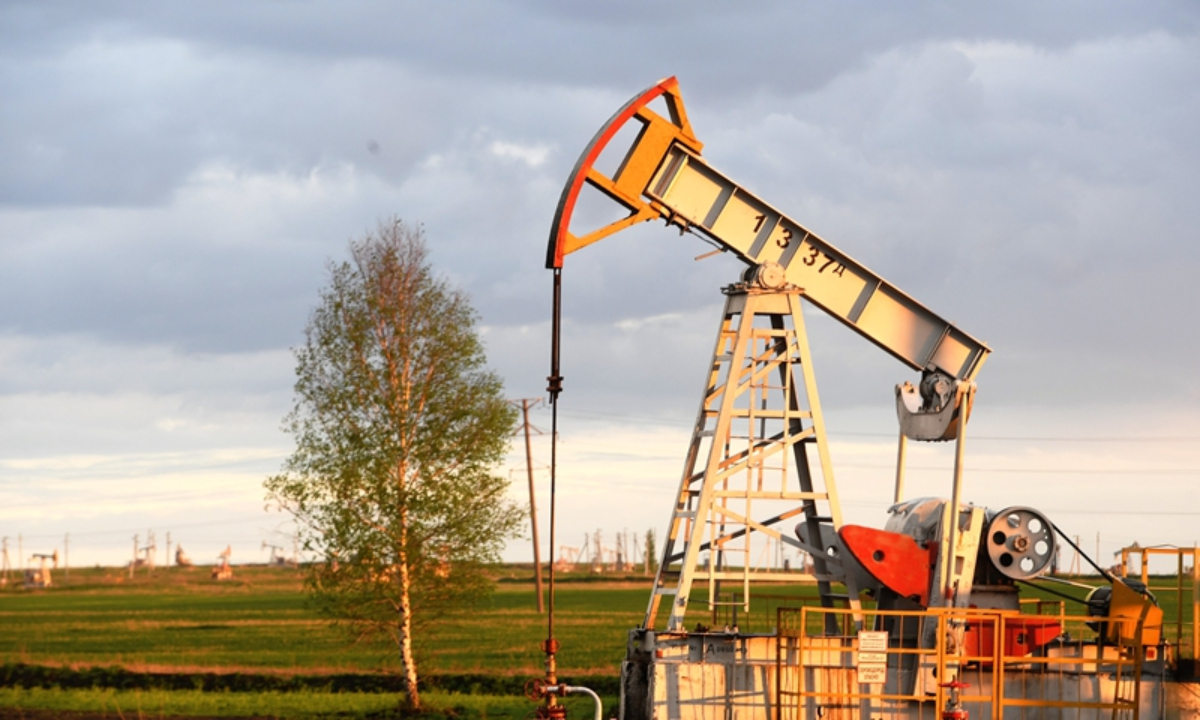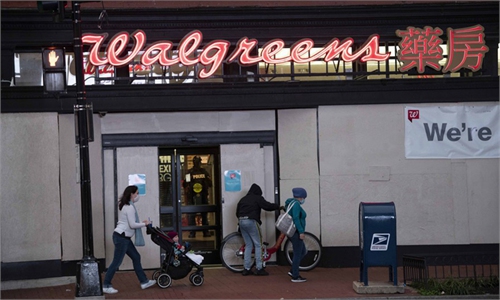
An oil pump is seen in Almetyevsky District, Republic of Tatarstan, Russia. File Photo: CFP
The past month of June saw the EU for the first time in history import more liquefied natural gas (LNG) from the US than pipeline gas from Russia, according to the International Energy Agency (IEA), Bloomberg reported Friday.
The development, which was mainly attributed to the sharp fall in Russian gas imports to Europe, came at a time when the EU is facing a looming energy crisis and soaring inflation as a result of the West's sweeping sanctions against Russia. The fact that US gas exports have emerged as the biggest winner from Western sanctions is, to a certain extent, an indication of the EU's resolve to wean itself off Russian energy supplies, which could be a long-term struggle that requires both strong will and great endurance. And the crucial question now hinges on whether the EU economy can support its political will.
It is no secret that the EU has been heavily dependent on imports of Russian gas for electricity generation and home heating, among other uses. Over the past years, Russia usually exported about 150 billion cubic meters of natural gas through pipelines to Europe on an annual basis, with an additional 14 billion to 18 billion cubic meters of LNG exports. In 2021, Russia's gas exports to the EU accounted for about 40 percent of the bloc's total gas imports.
After the Russia-Ukraine conflict broke out, the EU in March agreed to buy an additional 15 billion cubic meters of US LNG this year to displace Russian gas and planned to replace a third of Russian gas with LNG from various sources this year, according to the Bloomberg report. While the US is expected to become the world's biggest LNG exporter in 2022, it is impossible for US LNG to meet the supply gap of pipeline gas from Russia in the short term. A prominent reason is that Europe doesn't have the required scale of infrastructure for importing such a huge amount of LNG and it takes time to build those facilities.
Moreover, over the past decades, European countries have been looking for alternative energy sources by developing renewable energy, but oil and gas remain the most important energy sources to this day. It is obviously unrealistic for Europe to expect to replace fossil fuel with renewable energy in several years.
What's worse, to fight back Western sanctions, Russia is unlikely to give EU countries enough time to accomplish their energy shift. For instance, Gazprom, Russia's state-backed energy supplier, has reduced its gas flows to Europe by about 60 percent over the past few weeks, according to a CNBC report.
Usually European countries build up gas stocks during summer in preparation for heating demand in winter. But geopolitical changes have disrupted this cycle, meaning that Europe's energy supplies will be seriously stretched during the winter, posing severe difficulties for the already struggling EU economy.
The key question is whether the economy can sustain itself in this new landscape, especially in some weaker economies. When the cold front strikes, factories and shops may have to shut down again for the lack of gas and oil and many people will lose their jobs. What will households, shop owners, and manufacturers think about the energy crisis, which is bound to be a long-term one? People in Europe are simply unprepared for this situation. Surveys in several countries have already revealed their top concerns are rising prices, decreased incomes and unemployment.
The EU's sanctions against Russia will eventually become its own economic problem, undermining the coordination within the bloc and the integration process of the EU. The longer the energy struggle between Russia and the EU takes, the worse it is for both sides.



